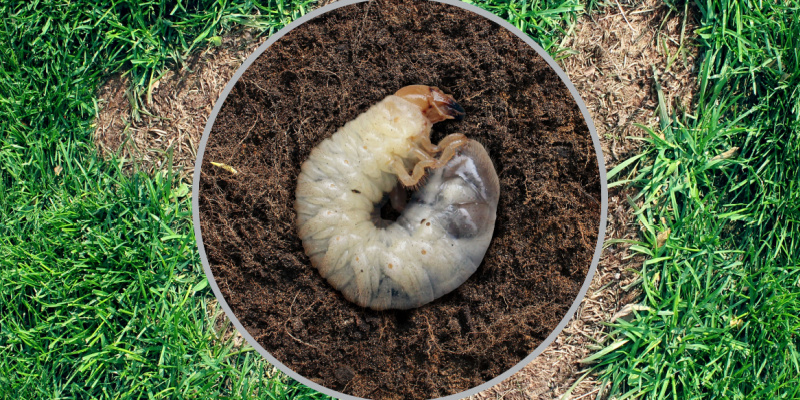Grubs are a common issue on many lawns, especially in Ohio, where the climate can be conducive to their development. These lawn pests are not just unappealing to look at, but they can also cause significant damage to your grass. Understanding why grubs appear in your lawn is the first step in effectively managing and preventing them.
What Are Grubs?
Grubs are the larval stage of various beetles, including the Japanese beetle, June beetle, and European chafer. They are typically white or cream-colored with a C-shaped body and are found beneath the soil surface, where they feed on the roots of grass.
Why Grubs are Attracted to Lawns
1. Ideal Breeding Grounds
Beetles are attracted to lay their eggs in lawns that provide suitable conditions for the growth of their larvae. These conditions include:
- Moist Soil: Lawns that are frequently watered or have good moisture retention can attract beetles for egg-laying.
- Thick Grass: Dense, healthy lawns might seem less likely to host grubs, but they actually provide a great environment for grubs to thrive, with ample food and shelter.
2. Local Climate
The climate in Ohio is particularly favorable for beetles and grubs. The warm summers and mild winters provide an ideal breeding ground for these insects.
Signs of Grub Infestation
1. Brown, Patchy Areas:
As grubs feed on grass roots, affected areas of the lawn will start to brown and die.
2. Increased Bird Activity:
Birds may flock to your lawn to feed on the grubs.
3. Spongy Feel Underfoot:
As the roots are eaten away, the turf may feel spongy when walked on.
The Lifecycle of Grubs
Understanding the grub lifecycle is key to understanding their presence in your lawn:
- Egg Laying:
During the summer, adult beetles lay eggs in the soil.
- Larvae Growth:
The eggs hatch into larvae, which is the stage when they are known as grubs.
- Feeding and Growth:
The grubs feed on grass roots, growing and preparing to overwinter beneath the soil.
- Overwintering:
Grubs burrow deeper into the soil to survive the winter.
- Maturation:
In the spring, the grubs mature and eventually emerge as adult beetles, restarting the cycle.
Factors Contributing to Grub Problems
1. Overwatering:
Lawns that are watered too frequently can create an ideal environment for grubs.
2. Lawn Type:
Certain types of grasses may be more susceptible to grub damage.
3. Soil Condition:
Poor soil health can make your lawn more vulnerable to grub infestations.
Preventing Grub Infestations
1. Proper Lawn Care
Maintaining a healthy lawn is crucial in preventing grubs:
- Aeration and Dethatching: This helps improve soil health and reduces the ideal environments for grubs.
- Proper Watering: Water your lawn deeply but infrequently to encourage strong root growth and reduce surface moisture.
2. Natural Predators
Encouraging natural predators like birds can help control the grub population.
3. Regular Monitoring
Inspect your lawn regularly for signs of grubs, especially during late summer and early fall.
4. Use of Preventative Products
There are various products available that can be applied to the lawn to prevent grub infestations:
- Chemical Insecticides: Products containing imidacloprid or thiamethoxam can be effective.
- Natural Solutions: Nematodes or milky spore disease can be used as organic alternatives.
Professional Lawn Care Services
If you’re struggling with a grub infestation or want to prevent one from occurring, professional lawn care services can provide the expertise and treatment needed:
- Expert Assessment:
They can accurately identify the extent of the problem and the best course of action.
- Tailored Treatments:
Professional treatments can be more effective and longer-lasting.
- Regular Maintenance:
Ongoing care can help prevent future infestations.
No homeowner wants to deal with grubs, but understanding why they are in your lawn is the first step in addressing the issue. By maintaining proper lawn care practices, monitoring your yard, and using preventative treatments, you can control and prevent grub infestations. Remember, a healthy lawn is less likely to have a severe grub problem. If you need assistance, don’t hesitate to seek professional lawn care services to keep your yard healthy and grub-free.

